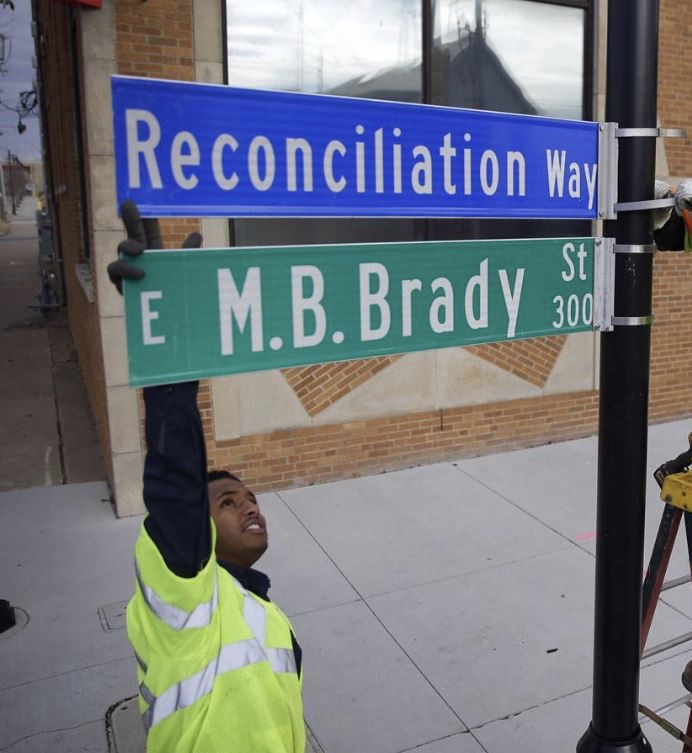Acknowledgements
No project like this one is possible without a community of supporters. Special thank you to everyone who contributed to the making of #TulsaSyllabus by either adding sources, offering advice, providing updates, catching errors, listening or creating space and lending support during an otherwise turbulent time to be a Black female academic. Thank you Hannibal Johnson, Scott Ellsworth, Jeff Van Hanken, Kristen Oertel, Sean Latham, Amanda Chastang, Luke Williams and The Tulsa Historical Society, Jodi Barnes, Edward Gonzalez-Tennant, Geoff Ward, Alicia Latimer, Shirley Nero, Monica Muñoz Martinez, Kary Stackelbeck, Scott Hammerstedt, Amanda Regnier, and Charlene Regester. We also think the authors, researchers, artists and activists whose essential work fill these pages to help tell a robust story about Greenwood.
This expansive bibliography was compiled from several different resource lists available through The University of Tulsa McFarlin Library Special Collections Department, The Tulsa Race Massacre Centennial Commission, The Tulsa City- County Library African American Resource Center, The John Hope Franklin Center for Reconciliation, and the Tulsa Historical Society. However, the current list has been expanded to include scholarship produced by archaeologists, cultural anthropologists, sociologists, and African Diaspora scholars.
Outside of this bibliography there are a number of institutions who have created their own resource guides/bibliographies to chronicle this history. Many of their listed readings are available online and include not only books and periodicals but photos, documents, maps, videos, recorded testimony, and other archival material.
There are also a number of researchers and institutions who have built interactive maps and databases that have and continue to track instances of racial terror in the United States. These maps provide a new level of visualization of the impact and spread of racial violence in this country. With this added visualization, users can more clearly connect past and present-day race relations in communities that have historically suffered from instances of racial terror but can also more clearly see a larger picture of systemic racism that has plagued America since its founding.

Photo courtesy of Ian Maule, the Tulsa World